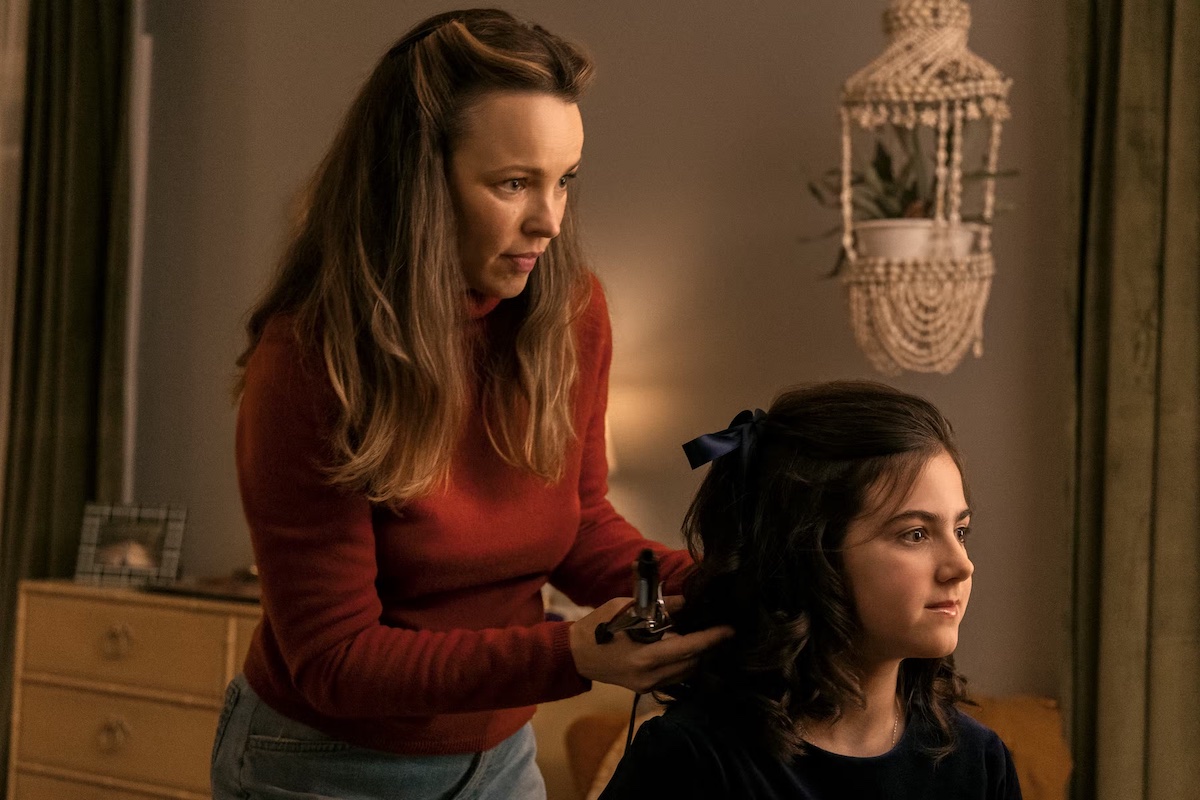Not long ago, my ten-year-old daughter and I read Judy Blume’s Are You There, God? It’s Me, Margaret together. She peppered me with questions—about puberty, bras, periods, religion, that mystical long-ago time called the ’70s—and we laughed together at Margaret’s exploits. When the movie came out a couple of weeks ago, starring Abby Ryder Fortson as Margaret and Rachel McAdams as her mother Barbara, we knew we had to see it together.
The funniest scene in the book is Margaret’s bust-increasing exercise. You know the one: you pump your arms and stick out your chest, yelling, “We must! We must! We must increase our bust!” When I got to that scene, I started giggling before the exercise even started, and when I managed to get the words of the chant out, my daughter understood why I couldn’t keep a straight face. Soon she was doubled over laughing, too. It’s a silly, comedic scene, but reading it to my daughter when I’d gotten such a kick out of it as a kid felt like passing down a quirky little tradition.
When we sat down in the theater, she turned to me. “Should we do the bust thing when they do it?” she asked.
“We need to do it,” I replied.
We didn’t do it loudly enough to disturb people. But when Margaret and her friends went at it, my daughter and I looked at each other, grinned, and quietly pumped our arms, dissolving into laughter along with the rest of the audience.
That was my favorite moment in the theater—and it was made all the better by sharing it with my daughter.
However, it wasn’t my favorite thing about the movie.
I love seeing uncomplicated mother/daughter relationships onscreen
In Are You There, God? It’s Me, Margaret, Barbara has a difficult past. She reveals to Margaret that she was disowned by her parents for marrying a Jewish man. It’s a sobering reminder that antisemitism was still thriving in 1970, and is still very much alive today. It’s also a bombshell for Margaret, who grapples with the earth-shattering question of why parents would abandon their kid over something as trivial (at least, in her world) as religion.
However, unlike her own parents, Barbara does her best to be a good mom to Margaret. She volunteers for school committees. She helps Margaret do her hair for a birthday party. She buys Margaret her first bra, even though she’s skeptical about how badly Margaret needs it. More importantly, though, she’s a source of unconditional love and support. At no point in the story does Margaret seriously doubt that her mom has her back.
Sure, Barbara messes up sometimes—for instance, when she makes Margaret cancel her Florida trip so that they can host Margaret’s bigoted grandparents. But who doesn’t mess up? Plus, Barbara learns from her mistakes. Consider her love of painting: at first, she thinks quitting her job as an art teacher is the right thing to do, but when she realizes her misstep, she carves out space for her art.
All too often, mothers in media are either sources of tension or just absent completely. It’s so refreshing to see a solid and loving mother/daughter relationship onscreen. Barbara isn’t just the kind of mother I aspire to be; she’s the kind of mother I know I can be.
And watching Barbara and Margaret navigate the thorny territory of puberty together was extra rewarding with my own daughter by my side.
(featured image: Lionsgate)










Published: May 11, 2023 07:54 pm